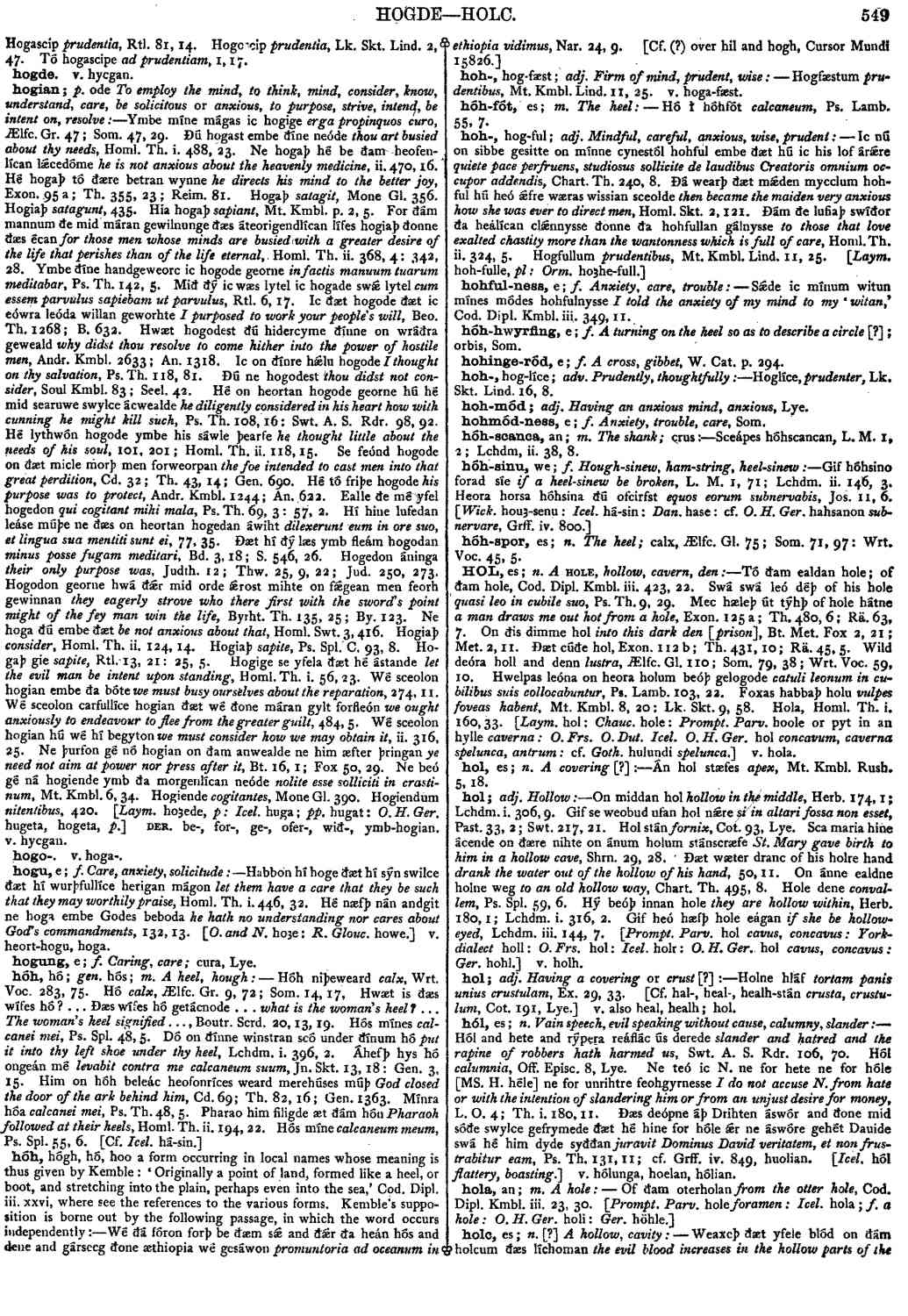hól
- noun [ neuter ]
-
Hól and hete and rýpera reáflác ús derede
slander and hatred and the rapine of robbers hath harmed us,
- Swt. A. S. Rdr. 106, 70.
-
Hól calumnia, Off. Episc. 8, Lye. Ne teó ic N. ne for hete ne for hóle [MS. H. héle] ne for unrihtre feohgyrnesse
I do not accuse N. from hate or with the intention of slandering him or from an unjust desire for money,
- L. O. 4; Th. i. 180, 11.
-
Ðæs deópne áþ Drihten áswór and ðone mid sóðe swylce gefrymede ðæt hé hine for hóle ǽr ne áswóre gehét Dauide swá hé him dyde syððan
juravit Dominus David verítatem, et non frustrabitur eam,
- Ps. Th. 131, 11; cf. Grff. iv. 849, huolian.
Bosworth, Joseph. “hól.” In An Anglo-Saxon Dictionary Online, edited by Thomas Northcote Toller, Christ Sean, and Ondřej Tichy. Prague: Faculty of Arts, Charles University, 2014. https://bosworthtoller.com/19441.
Checked: 0